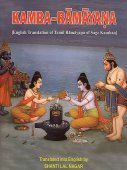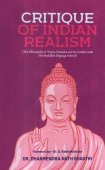Raghu: 20 definitions
Introduction:
Raghu means something in Hinduism, Sanskrit, Jainism, Prakrit, Marathi. If you want to know the exact meaning, history, etymology or English translation of this term then check out the descriptions on this page. Add your comment or reference to a book if you want to contribute to this summary article.
In Hinduism
Natyashastra (theatrics and dramaturgy)
Source: archive.org: The mirror of gesture (abhinaya-darpana)One of the Hands of Famous Emperors.—For the great Kings Raghu and Aja, Ardha-patāka hands as aforesaid are used respectively right and left.

Natyashastra (नाट्यशास्त्र, nāṭyaśāstra) refers to both the ancient Indian tradition (shastra) of performing arts, (natya—theatrics, drama, dance, music), as well as the name of a Sanskrit work dealing with these subjects. It also teaches the rules for composing Dramatic plays (nataka), construction and performance of Theater, and Poetic works (kavya).
Purana and Itihasa (epic history)
Source: Wisdom Library: Bhagavata PuranaRaghu (रघु):—Son of Dīrghabāhu (son of Khaṭvāṅga). He had a son named Aja. (see Bhāgavata Purāṇa 9.10.1)
Source: archive.org: Puranic EncyclopediaRaghu (रघु).—General. A famous king of the Solar dynasty. The great king Dilīpa was his father. (For Genealogy, birth etc., see under Daśaratha and Dilīpa). Other information.
(i) Raghu also occupies a place in the list of famous kings of ancient days. (Ādi Parva, Chapter 1, Verse 232).
(ii) In the fight between the king of Virāṭa and the Kauravas (over the lifting of cows) Raghu was present along with Indra to see Arjuna fight. (Virāṭa Parva, Chapter 56, Verse 10).
(iii) Raghu got from King Yuvanāśva a sword, which he presented to Hariṇāśva. (Śānti Parva Chapter 166, Verse 78).
(iv) He did not eat flesh. (Anuśāsana Parva, Chapter 150, Verse 81).
(v) Kṣatriyas who praise Raghu will not be defeated in war. (Anuśāsana Parva, Chapter 165, Verse 51).
(vi) In the list of kings to be remembered at dawn and at dusk Raghu too is included. (Anuśāsana Parva, Chapter 165, Verse 51). (See full article at Story of Raghu from the Puranic encyclopaedia by Vettam Mani)
Source: Cologne Digital Sanskrit Dictionaries: The Purana Index1a) Raghu (रघु).—A son of Dīrghabāhu, and a man of everlasting glory. His son was Aja. Lust after more territory: knew the power of Viṣṇu's yogamāyā.*
- * Bhāgavata-purāṇa IX. 10. 1; XII. 3. 9; II. 7. 44; Brahmāṇḍa-purāṇa III. 63. 183; Vāyu-purāṇa 88. 183; Viṣṇu-purāṇa IV. 4. 84-5.
1b) A son of Nighna.*
- * Matsya-purāṇa 12. 47.
Raghu (रघु) is a name mentioned in the Mahābhārata (cf. XIII.116.65, XIII.115) and represents one of the many proper names used for people and places. Note: The Mahābhārata (mentioning Raghu) is a Sanskrit epic poem consisting of 100,000 ślokas (metrical verses) and is over 2000 years old.
Source: Shodhganga: The saurapurana - a critical studyRaghu (रघु) is the son of Dīrghabāhu and grandson of Khatvāṅga, according to the Vaṃśānucarita section of the 10th century Saurapurāṇa: one of the various Upapurāṇas depicting Śaivism.—Accordingly, [...] Ilavila was born of Śataratha. Ilavila’s son was Vṛddhaśarman who begot Viśvabāhu and the latter’s son was Khatvāṅga. Dīrghabāhu was born from Khatvāṅga and Raghu was the son of Dīrghabāhu. The son of Raghu was very famous from whom Daśaratha was born.

The Purana (पुराण, purāṇas) refers to Sanskrit literature preserving ancient India’s vast cultural history, including historical legends, religious ceremonies, various arts and sciences. The eighteen mahapuranas total over 400,000 shlokas (metrical couplets) and date to at least several centuries BCE.
General definition (in Hinduism)
Source: Apam Napat: Indian MythologyRaghu was a king of the Surya (sun) dynasty, the son of Kakutstha. He is an ancestor of Rama. His son is Pravriddha, also known as Kalmashapadha.
In Jainism
General definition (in Jainism)
Source: archive.org: TrisastisalakapurusacaritraRaghu (रघु) is the name of an ancient king, according to the Jain Ramayana and chapter 7.4 [Rāma and Lakṣmaṇa] of Hemacandra’s 11th century Triṣaṣṭiśalākāpuruṣacaritra: an ancient Sanskrit epic poem narrating the history and legends of sixty-three illustrious persons in Jainism.—Accordingly, “Siṃharatha’s son, Brahmaratha, became king next, then Cāturmukha, Hemaratha, Śataratha, Udayapṛthu, Vāriratha, Induratha, Ādityaratha, Māndhātṛ, Vīrasena in turn, King Pratimanyu, King Pratibandhu, King Ravimanyu, Vasantatilaka, Kuberadatta, Kunthu, Śarabha, Dvirada in turn, then Siṃhadaśana, Hiraṇyakaśipu, Puñjasthala, Kakutstha, Raghu. Among these kings some reached emancipation and some heaven”.

Jainism is an Indian religion of Dharma whose doctrine revolves around harmlessness (ahimsa) towards every living being. The two major branches (Digambara and Svetambara) of Jainism stimulate self-control (or, shramana, ‘self-reliance’) and spiritual development through a path of peace for the soul to progess to the ultimate goal.
Languages of India and abroad
Marathi-English dictionary
Source: DDSA: The Molesworth Marathi and English Dictionaryrāghū (राघू) [or राघो, rāghō].—m Redringed paroquet, Palæornis torquatus or Alexandrinus. 2 Applied fig. to the green filament within haḍagyācēṃ phūla. 3 In ballads &c. A lover, a gallant.
Source: DDSA: The Aryabhusan school dictionary, Marathi-Englishrāghū (राघू).—m Red-ringed paroquet.
Marathi is an Indo-European language having over 70 million native speakers people in (predominantly) Maharashtra India. Marathi, like many other Indo-Aryan languages, evolved from early forms of Prakrit, which itself is a subset of Sanskrit, one of the most ancient languages of the world.
Sanskrit dictionary
Source: DDSA: The practical Sanskrit-English dictionaryRaghu (रघु).—a. Ved.
1) Quick, rapid.
2) Light, nimble.
3) Fickle
4) Eager.
-ghuḥ 1 Name of a celebrated king of the solar race, son of Dilīpa and father of Aja. [He appears to have been called Raghu from ragh or raṅgh 'to go', because his father foresaw that the boy would 'go' to the end of the holy learning as well as of his enemies in battle; cf. R.3.21. True to his name, he commenced the conquest of the directions, went over the whole of the then known world, overcame kings in battle, and returned covered with glory and laden with spoils. He then performed the Viśvajit sacrifice in which he gave away everything to Brāhmaṇas and made his son Aja successor to the throne.]
2) (pl.) The Raghus or descendants of Raghu; रघूणा- मन्वयं वक्ष्ये तनुवाग्विभवोऽपि सन् (raghūṇā- manvayaṃ vakṣye tanuvāgvibhavo'pi san) R.1.9.
Source: Cologne Digital Sanskrit Dictionaries: Edgerton Buddhist Hybrid Sanskrit DictionaryRaghu (रघु).—(= Sanskrit laghu), (light,) quick(ly): raghuṃ Mahāvastu ii.5.9, mss.; Senart em. laghuṃ, with parallel i.201.14.
Source: Cologne Digital Sanskrit Dictionaries: Shabda-Sagara Sanskrit-English DictionaryRaghu (रघु).—m.
(-ghuḥ) 1. The name of a sovereign of Oudh, the great grand-father of Ramachandra. 2. The family or descendants of Raghu. E. laghi to shine, ku Unadi aff., la changed to ra, nasal augment rejected.
Source: Cologne Digital Sanskrit Dictionaries: Benfey Sanskrit-English DictionaryRaghu (रघु).—i. e. raṅgh + u, I. adj. ved. = laghu. Ii. m. 1. The name of a king, [Uttara Rāmacarita, 2. ed. Calc., 1862.] 96, 3. 2. pl., and often in comp. words, His descendants, [Rāmāyaṇa] 3, 49, 57; [Meghadūta, (ed. Gildemeister.)] 12 (raghu -pati = Rāma).
Source: Cologne Digital Sanskrit Dictionaries: Cappeller Sanskrit-English DictionaryRaghu (रघु).—[feminine] raghvī running, swift, fleet, light; [masculine] runner, courser; [Name] of an ancient king, [plural] his race.
Source: Cologne Digital Sanskrit Dictionaries: Monier-Williams Sanskrit-English Dictionary1) Raghu (रघु):—mf(vī)n. (√raṃh; cf. laghu) hastening, going speedily, fleet, rapid, [Ṛg-veda]
2) light, fickle, [ib.]
3) m. a racer, fleet courser, [ib.]
4) Name of an ancient king and ancestor of Rāma (described in Raghu-vaṃśa as son of Dilīpa and Su-dakṣiṇā; he was father of Aja who was father of Daśa-ratha; hence he was great-grandfather of Rāma; in the Rāmāyaṇa Raghu is said to be son of Kakutstha; in the Hari-vaṃśa two Raghus are mentioned among the ancestors of Rāma), [Rāmāyaṇa; Harivaṃśa; Raghuvaṃśa; Purāṇa] ([Indian Wisdom, by Sir M. Monier-Williams 344])
5) of a son of Gautama Buddha, [Buddhist literature]
6) of various authors (also with daiva-jña and sūri), [Catalogue(s)]
7) = the poem raghu-vaṃśa (cf. next)
8) m. [plural] the descendants of Raghu, [Raghuvaṃśa; Rājataraṅgiṇī]
Source: Cologne Digital Sanskrit Dictionaries: Yates Sanskrit-English DictionaryRaghu (रघु):—(ghuḥ) 2. m. Great grandfather of Rāma.
Source: DDSA: Paia-sadda-mahannavo; a comprehensive Prakrit Hindi dictionary (S)Raghu (रघु) in the Sanskrit language is related to the Prakrit word: Rahu.
[Sanskrit to German]
Sanskrit, also spelled संस्कृतम् (saṃskṛtam), is an ancient language of India commonly seen as the grandmother of the Indo-European language family (even English!). Closely allied with Prakrit and Pali, Sanskrit is more exhaustive in both grammar and terms and has the most extensive collection of literature in the world, greatly surpassing its sister-languages Greek and Latin.
See also (Relevant definitions)
Starts with (+116): Raghu daivajna, Raghu kavidarpana, Raghu suri, Raghudasa, Raghudeva, Raghudeva nyayalamkara bhattacarya, Raghudevi, Raghudru, Raghudvaha, Raghuja, Raghukara, Raghukul, Raghukula, Raghukulottamsa, Raghulaladasa, Raghumahatmya, Raghumani, Raghumanyu, Raghumukha, Raghunandana.
Ends with: Caurangi Raghu, Maderaghu, Nalprabhu, Pancarangiraghu, Suraghu.
Full-text (+187): Raghuvamsha, Raghunatha, Raghava, Raghunandana, Raghuvara, Raghudvaha, Raghukara, Raghuttama, Raghupati, Dirghabahu, Raghutilaka, Raghuvira, Raghupravara, Raghunayaka, Raghupratinidhi, Raghuya, Kavidarpana, Maderaghu, Raghav, Caurangi Raghu.
Relevant text
Search found 69 books and stories containing Raghu, Rāghū; (plurals include: Raghus, Rāghūs). You can also click to the full overview containing English textual excerpts. Below are direct links for the most relevant articles:
Garga Samhita (English) (by Danavir Goswami)
Verse 1.4.43 < [Chapter 4 - Description of Questions About the Lord’s Appearance]
Verse 1.4.63 < [Chapter 4 - Description of Questions About the Lord’s Appearance]
Verse 5.15.31 < [Chapter 15 - Seeing Sri Radha]
Ramayana of Valmiki (by Hari Prasad Shastri)
Chapter 82 - Rama takes leave of Agastya < [Book 7 - Uttara-kanda]
Chapter 62 - Shatrughna asks permission to fight Lavana < [Book 7 - Uttara-kanda]
Chapter 72 - Shatrughna returns to see Rama < [Book 7 - Uttara-kanda]
Rig Veda (translation and commentary) (by H. H. Wilson)
Ramayana (by Manmatha Nath Dutt)
Chapter XL < [Book 1 - Bāla-kāṇḍa]
Chapter XXI < [Book 1 - Bāla-kāṇḍa]
Chapter LXXIII < [Book 1 - Bāla-kāṇḍa]
The Padma Purana (by N.A. Deshpande)
Chapter 244 - Rāma Goes to Heaven < [Section 6 - Uttara-Khaṇḍa (Concluding Section)]
Chapter 242 - The Story of Rāma < [Section 6 - Uttara-Khaṇḍa (Concluding Section)]
Chapter 5 - The Coming of Sage Agasti < [Section 5 - Pātāla-Khaṇḍa (Section on the Nether World)]
The Agni Purana (by N. Gangadharan)
Related products



